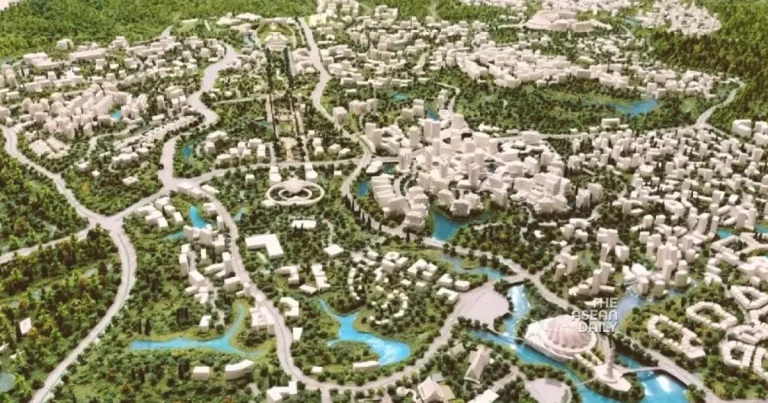13-12-2023 (JAKARTA) In the realm of the climate crisis, the repercussions of urban actions resonate far beyond local borders, impacting us all. Navigating these challenges necessitates cities worldwide to formulate robust strategies, contributing significantly to the attainment of net-zero objectives.
As global leaders assemble in Dubai for COP28, the preeminent climate summit of the year, the impetus intensifies for cities to assume a pivotal role in combatting climate change.
Empowering cities to lead the charge in climate mitigation involves the adoption of sustainable policies, investments in renewable energy, and the promotion of eco-friendly urban planning. Recognizing this imperative, Indonesia, a key influencer, is set to pioneer change with the development of Nusantara, the nation’s new capital slated for completion in 2024. Nusantara is poised to embody a net-zero emissions strategy, aligning itself with the pressing need for sustainable urban development.
The unequivocal significance of urban areas in exacerbating climate change is evident, particularly in the realm of emissions. According to United Nations Habitat, cities consume a staggering 78% of global energy and produce over 60% of greenhouse gases, all while occupying less than 2% of the Earth’s surface. The U.N. Environment Programme further underscores that urban buildings contribute to one-third of emissions and consume 40% of global energy.
The urgency to overhaul development strategies is paramount, given the burgeoning urban populations globally. Indonesia, grappling with a rapid urbanization rate that has pushed 55% of its populace into urban settings, is emblematic of this trend. This urban surge has led to overcrowded cities, informal settlements, and a dearth of basic services, exacerbating challenges such as access to clean water and sanitation.
In the face of these challenges, innovative solutions become imperative. Indonesia’s visionary plan for Nusantara as a net-zero emissions city by 2045 is a testament to the commitment to sustainable urban development. The Nusantara Net Zero 2045 Strategy, unveiled at COP28, outlines a blueprint for eco-friendly infrastructure, renewable energy, efficient transportation, and expansive green spaces, aiming to envelop three-quarters of the future capital in tropical forests and green zones.
Central to Nusantara’s strategy is a reliance on renewable energy sources for sustainability in power supply. President Joko Widodo recently inaugurated a 50-megawatt solar power plant, poised to annually reduce carbon dioxide emissions by 104,000 tons. Concurrently, the city is investing in electric vehicles and public transportation, strategically placing key locations within a 10-minute walk from transit stops, signifying a commitment to a comprehensive and efficient transport network.
An additional critical aspect of sustainable cities involves local food production. A report by the Tony Blair Institute for Global Change highlights the importance of cities producing at least 30% of their own fruit and vegetables for resilience against climate threats. Nusantara’s Mentawir seedling nursery, covering 120 hectares and producing 15 million seeds annually, exemplifies this ethos, underlining the role of urban agriculture in addressing climate challenges.
Nusantara’s net-zero aspirations also hinge on inclusive urban infrastructure and green space accessibility. The city is actively enhancing residents’ tech skills by providing solar power training, particularly targeting women and people with disabilities. Moreover, communities are integral to nature conservation efforts.
The time is ripe for cities to evolve into pioneers of climate solutions, given their dual role as contributors to global warming and vulnerability to its impacts. Cities possess the resources, infrastructure, and political clout necessary for effective solutions. By embracing sustainable practices, cities stand poised to exponentially augment their contributions to global climate goals.




